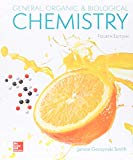
Loose Leaf for General, Organic and Biological Chemistry with Connect 2 Year Access Card
4th Edition
ISBN: 9781260269284
Author: Janice Gorzynski Smith Dr.
Publisher: McGraw-Hill Education
expand_more
expand_more
format_list_bulleted
Question
Chapter 25, Problem 42P
Interpretation Introduction
Interpretation:
To determine the effect of the less secretion of acids in urine due to the failure of kidneys on the pH of the blood.
Concept Introduction:
Kidneys help in the regulation of acids in the body along with the elimination of the wastes from the body. When the kidneys are damaged, there is a waste buildup in the body and causes various health problems. The amount of acid is also not regulated in the case of kidney failure.
Expert Solution & Answer
Want to see the full answer?
Check out a sample textbook solution
Students have asked these similar questions
Steps and explanation please
can you please draw out and list step-by-step the synthetic strategy for this rxn? thank you sm in advance
Steps and explanations please
Chapter 25 Solutions
Loose Leaf for General, Organic and Biological Chemistry with Connect 2 Year Access Card
Ch. 25.1 - Prob. 25.1PCh. 25.1 - Prob. 25.2PCh. 25.2 - Compare erythrocytes, leukocytes, and platelets...Ch. 25.2 - Prob. 25.4PCh. 25.2 - Prob. 25.5PCh. 25.2 - Prob. 25.6PCh. 25.2 - Prob. 25.7PCh. 25.3 - Prob. 25.8PCh. 25.3 - Prob. 25.1PPCh. 25.3 - Prob. 25.9P
Ch. 25.3 - Prob. 25.10PCh. 25.4 - Prob. 25.11PCh. 25.4 - Prob. 25.12PCh. 25.5 - (a) Which compound, morphine or heroin, is more...Ch. 25.5 - Prob. 25.14PCh. 25.6 - Prob. 25.15PCh. 25.6 - Prob. 25.16PCh. 25.6 - Prob. 25.17PCh. 25.6 - Individuals with a rare condition called diabetes...Ch. 25 - Prob. 19PCh. 25 - Prob. 20PCh. 25 - Prob. 21PCh. 25 - Prob. 22PCh. 25 - Prob. 23PCh. 25 - Prob. 24PCh. 25 - Prob. 25PCh. 25 - Prob. 26PCh. 25 - For each substance, indicate if it is present in...Ch. 25 - Prob. 28PCh. 25 - Prob. 29PCh. 25 - Prob. 30PCh. 25 - Prob. 31PCh. 25 - Prob. 32PCh. 25 - Prob. 33PCh. 25 - Prob. 34PCh. 25 - Prob. 35PCh. 25 - Which of the following locations corresponds to...Ch. 25 - Prob. 37PCh. 25 - Prob. 38PCh. 25 - Prob. 39PCh. 25 - Prob. 40PCh. 25 - Prob. 41PCh. 25 - Prob. 42PCh. 25 - Explain how abnormally fast respirationthat is,...Ch. 25 - Prob. 44PCh. 25 - Prob. 45PCh. 25 - Prob. 46PCh. 25 - Prob. 47PCh. 25 - Prob. 48PCh. 25 - When blood flows through the glomerulus, which...Ch. 25 - Prob. 50PCh. 25 - Prob. 51PCh. 25 - Prob. 52P
Knowledge Booster
Learn more about
Need a deep-dive on the concept behind this application? Look no further. Learn more about this topic, chemistry and related others by exploring similar questions and additional content below.Similar questions
- Use diagram to answer the following: 1.Is the overall rxn endo- or exothermic. Explain briefly your answer____________________2. How many steps in this mechanism?_____________3. Which is the rate determining step? Explain briefly your answer____________________4. Identify (circle and label) the reactants,the products and intermediate (Is a Cation, Anion, or a Radical?) Please explain and provide full understanding.arrow_forwardDraw the entire mechanism and add Curved Arrows to show clearly how electrons areredistributed in the process. Please explain and provide steps clearly.arrow_forward15) Create Lewis structure Br Brarrow_forward
- LIOT S How would you make 200. mL of a 0.5 M solution of CuSO4 5H2O from solid copper (II) sulfate? View Rubricarrow_forwardSteps and explantions pleasearrow_forwardMatch the denticity to the ligand. Water monodentate ✓ C₂O2 bidentate H₂NCH₂NHCH2NH2 bidentate x EDTA hexadentate Question 12 Partially correct Mark 2 out of 2 Flag question Provide the required information for the coordination compound shown below: Na NC-Ag-CN] Number of ligands: 20 Coordination number: 2✔ Geometry: linear Oxidation state of transition metal ion: +3 x in 12 correct out of 2 question Provide the required information for the coordination compound shown below. Na NC-Ag-CN] Number of ligands: 20 Coordination number: 2 Geometry: linear 0 Oxidation state of transition metal ion: +3Xarrow_forward
- Can you explain step by step behind what the synthetic strategy would be?arrow_forwardPlease explain step by step in detail the reasoning behind this problem/approach/and answer. thank you!arrow_forward2. Predict the product(s) that forms and explain why it forms. Assume that any necessary catalytic acid is present. .OH HO H₂N OHarrow_forward
- consider the rate of the reaction below to be r. Whats the rate after each reaction? Br + NaCN CN + NaBr a. Double the concentration of alkyl bromide b. Halve the concentration of the electrophile & triple concentration of cyanide c. Halve the concentration of alkyl chloridearrow_forwardPredict the organic reactant that is involved in the reaction below, and draw the skeletal ("line") structures of the missing organic reactant. Please include all steps & drawings & explanations.arrow_forwardWhat are the missing reagents for the spots labeled 1 and 3? Please give a detailed explanation and include the drawings and show how the synthesis proceeds with the reagents.arrow_forward
arrow_back_ios
SEE MORE QUESTIONS
arrow_forward_ios
Recommended textbooks for you
 Chemistry for Today: General, Organic, and Bioche...ChemistryISBN:9781305960060Author:Spencer L. Seager, Michael R. Slabaugh, Maren S. HansenPublisher:Cengage Learning
Chemistry for Today: General, Organic, and Bioche...ChemistryISBN:9781305960060Author:Spencer L. Seager, Michael R. Slabaugh, Maren S. HansenPublisher:Cengage Learning Chemistry by OpenStax (2015-05-04)ChemistryISBN:9781938168390Author:Klaus Theopold, Richard H Langley, Paul Flowers, William R. Robinson, Mark BlaserPublisher:OpenStax
Chemistry by OpenStax (2015-05-04)ChemistryISBN:9781938168390Author:Klaus Theopold, Richard H Langley, Paul Flowers, William R. Robinson, Mark BlaserPublisher:OpenStax Principles of Modern ChemistryChemistryISBN:9781305079113Author:David W. Oxtoby, H. Pat Gillis, Laurie J. ButlerPublisher:Cengage Learning
Principles of Modern ChemistryChemistryISBN:9781305079113Author:David W. Oxtoby, H. Pat Gillis, Laurie J. ButlerPublisher:Cengage Learning

Chemistry for Today: General, Organic, and Bioche...
Chemistry
ISBN:9781305960060
Author:Spencer L. Seager, Michael R. Slabaugh, Maren S. Hansen
Publisher:Cengage Learning



Chemistry by OpenStax (2015-05-04)
Chemistry
ISBN:9781938168390
Author:Klaus Theopold, Richard H Langley, Paul Flowers, William R. Robinson, Mark Blaser
Publisher:OpenStax

Principles of Modern Chemistry
Chemistry
ISBN:9781305079113
Author:David W. Oxtoby, H. Pat Gillis, Laurie J. Butler
Publisher:Cengage Learning
What are CHNOPS? These Chemical Elements = 98% of Life | Biology | Biochemistry; Author: Socratica;https://www.youtube.com/watch?v=w90wFlR53VM;License: Standard YouTube License, CC-BY